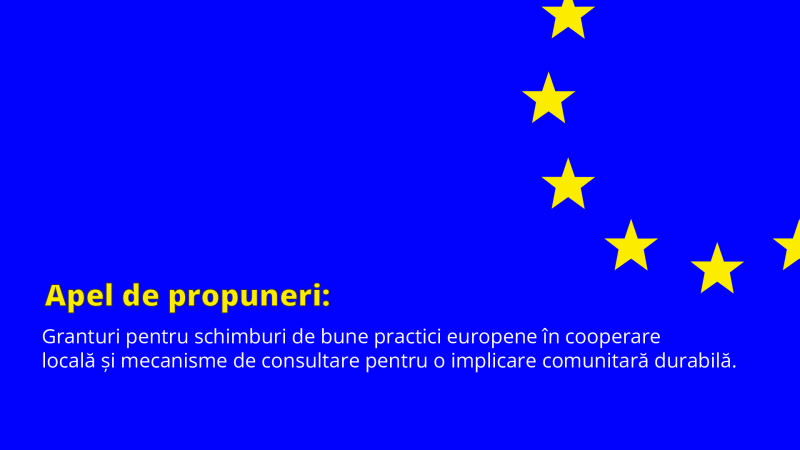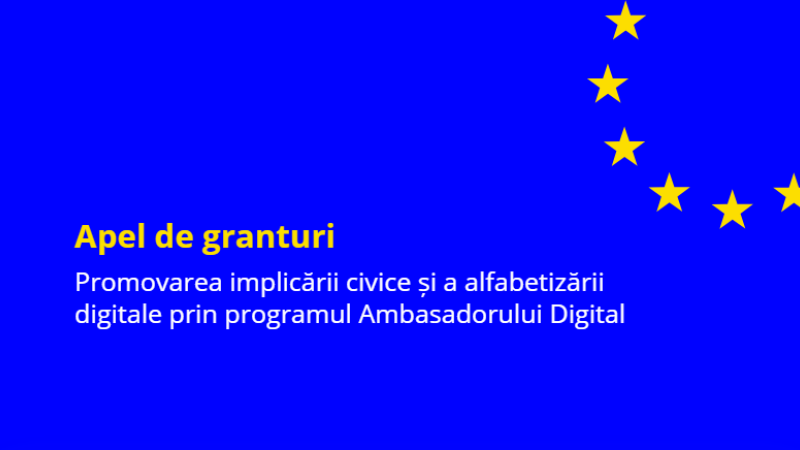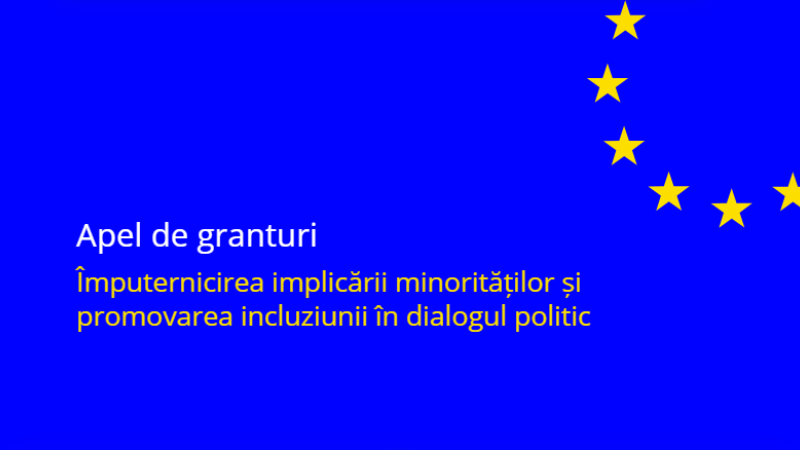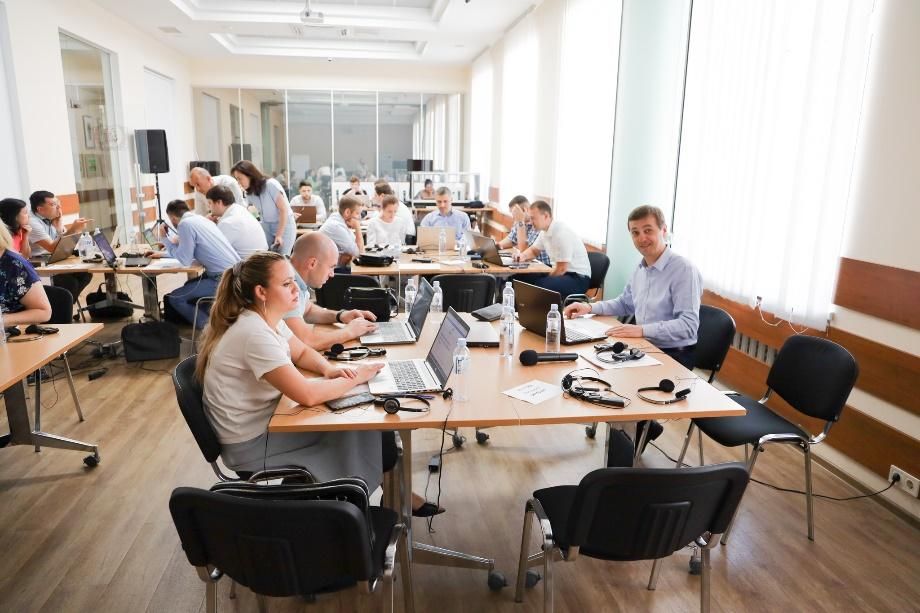
Consolidarea luptei împotriva corupției și spălării banilor în Republica Moldova: o inițiativă de instruire transformatoare
Pe lângă pașii importanți de consolidare a capacității instituțiilor anticorupție din Republica Moldova de a combate corupția și spălarea banilor, proiectul GIZ „Consolidarea statului de drept și a mecanismelor anticorupție în Republica Moldova”, cofinanțat de Uniunea Europeană și Ministerul Federal German pentru Cooperare Economică și Dezvoltare (BMZ), în colaborare cu Institutul Național al Justiției (INJ), a inițiat un program cuprinzător de formare menit să echipeze oficialii și părțile interesate cu instrumente de ultimă oră, să transmită cunoștințe și abilități, necesare pentru a aborda provocările multidimensionale ale corupției și spălării banilor. Acest training a avut loc în perioada 3 iulie – 7 iulie 2023. Participanții acestui eveniment educațional au fost procurori, judecători de instrucție, și reprezentanți ai principalelor instituții anticorupție, cum ar fi Centrul Național Anticorupție, Agenția de Recuperare a Bunurilor Infracționale, Serviciul de Prevenire și Combatere a Spălării Banilor și Autoritatea Națională de Integritate.
Obiectivul principal al cursului a fost de a spori capacitățile participanților de a aplica tehnici avansate de investigație. Aceștia au obținut abilități necesare pentru identificarea martorilor și obținerea dovezilor, care au o importanță crucială în cauzele de urmărirea penală pe segmentul spălare a banilor și corupție, concentrându-se totodată pe strategiile de recuperare a activelor.
Corupția și spălarea banilor reprezintă amenințări semnificative la dezvoltarea, democrația și securitatea unei țări. Cunoscând relația simbiotică dintre aceste două probleme, organizațiile internaționale precum Grupul de acțiune financiară (FATF) au accentuat care este rolul instituțiilor de aplicare a legii (LEA) în combaterea acestor infracțiuni. Mai ales, Recomandarea nr. 30 a FATF care dispune ca autoritățile competente de aplicare a legii să ia măsuri proactive de investigare a cauzelor de spălare a banilor care implică infracțiuni majore generatoare de venituri.
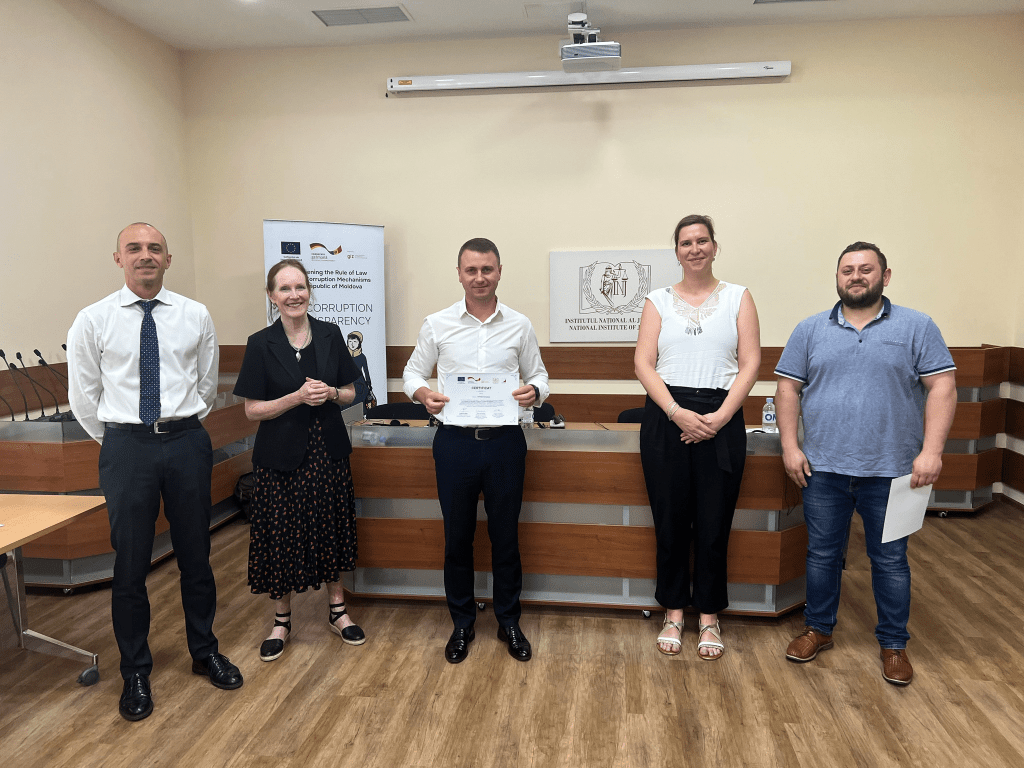
Centrul Internațional pentru Recuperarea Activelor (ICAR), ca parte a Institutului de Guvernare din Basel, a jucat un rol esențial la desfășurarea acestui program de instruire. Facilitat de consilierii superiori și specialiști ICAR, și în colaborare cu Institutul Național al Justiției din Moldova, atelierul de cinci zile desfășurat la Chișinău a inclus prelegeri interactive, mini-ateliere și o anchetă simulată de corupție. Instruirea cuprinzătoare a acoperit teme variind de la elementele esențiale de spălare a banilor până la asistența juridică reciprocă și mecanismele de recuperare a activelor.
Investigația simulată a provocat participanții să efectueze o anchetă complexă financiară și de urmărire a activelor, reflectând scenarii din lumea reală. Fiecare grup a analizat în profunzime un caz fictiv, a identificat infracțiuni de corupție și de spălare a banilor, a comparat fapte cu elemente și a adunat probe pentru caz. Mai mult, și-au sporit abilitățile de urmărire a bunurilor infracționale, necesare pentru obținerea ordinului de sechestrare și confiscare.
Acest program de instruire a oferit o serie de prezentări, inclusiv o privire de ansamblu asupra spălării banilor, o defalcare a elementelor infracțiunii conform legislației Republicii Moldova, analiză financiară folosind Excel-ul și metode de cercetare financiară. În plus, participanții au cercetat amănunțit cererea de asistența juridică reciprocă și au examinat provocările întâlnite la investigarea și urmărirea penală a cauzelor de spălare a banilor în Republica Moldova, prezentate de dl. Octavian Iachimovschi, procuror-șef adjunct al Procuraturii Anticorupție.
Încurajând colaborarea, îmbunătățind cunoștințele și capacitând participanții cu abilități practice, cu ajutorul acestei inițiative Moldova a avansat semnificativ în lupta împotriva corupției și spălare a banilor. Cei din prima linie și-au întărit capacitățile de a contracara aceste amenințări grave în adresa bunăstării naționale consolidând statul de drept și promovând integritatea țării.
